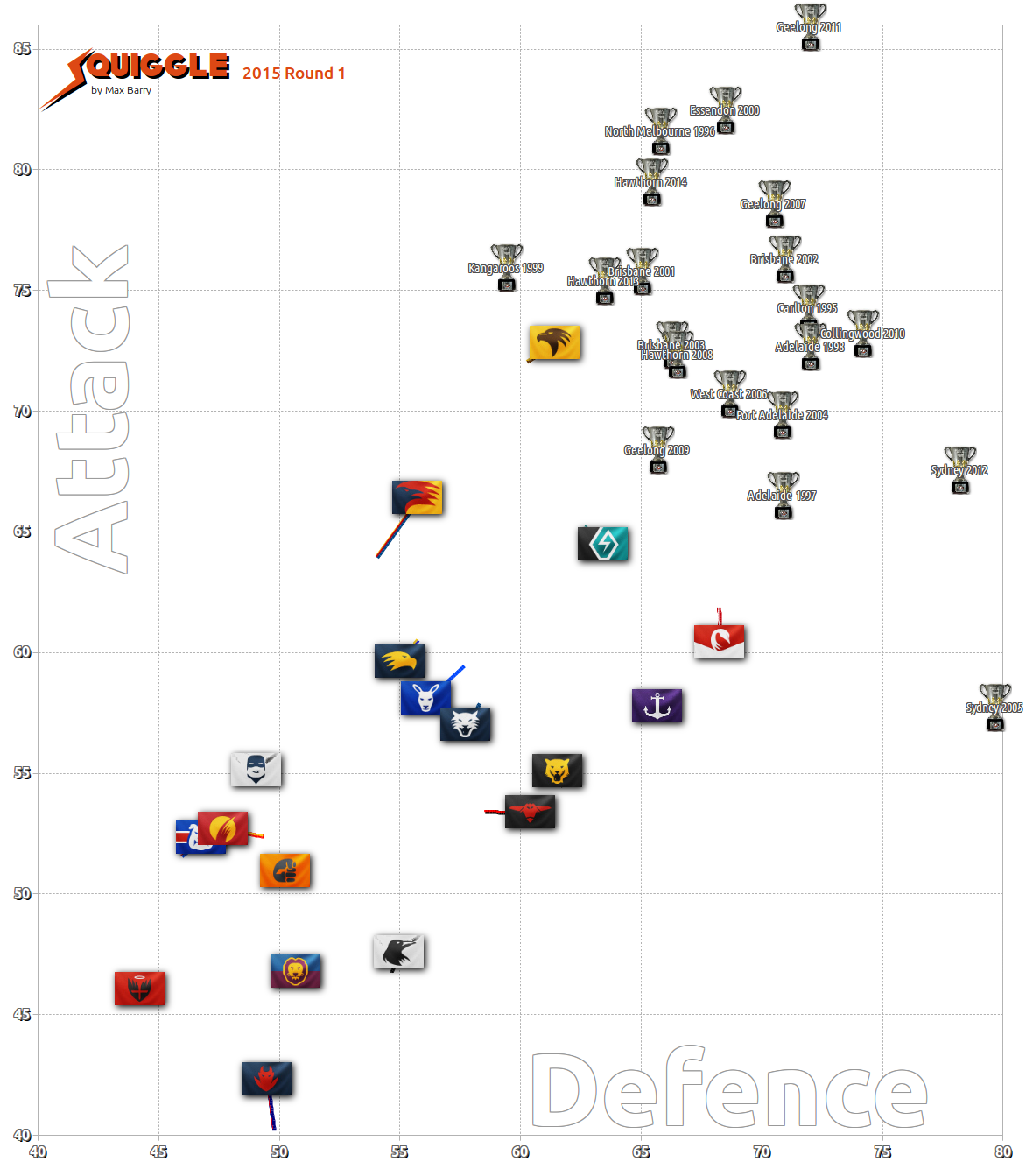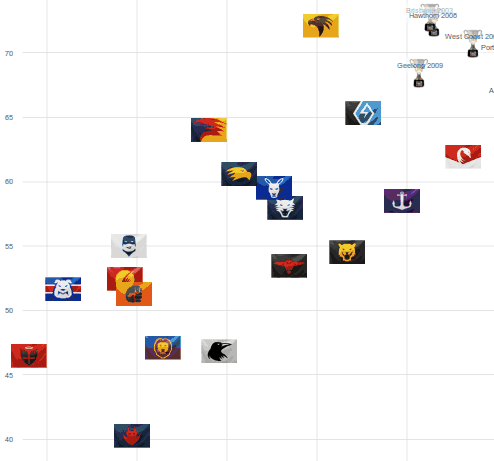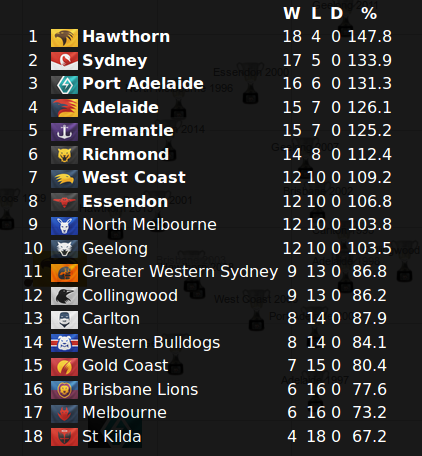- Jun 6, 2012
- 10,197
- 18,296
- AFL Club
- Carlton
- Other Teams
- Rampage
Well it only gets mentioned in every single pre-game commentary segment since Malthouse became coach. Google 'Malthouse defence-orientated' and you'll get a dozen articles, even though 'orientated' isn't a proper word.I haven't heard that that much, I have heard claims that Carlton are the most boundary hugging side in the league.









